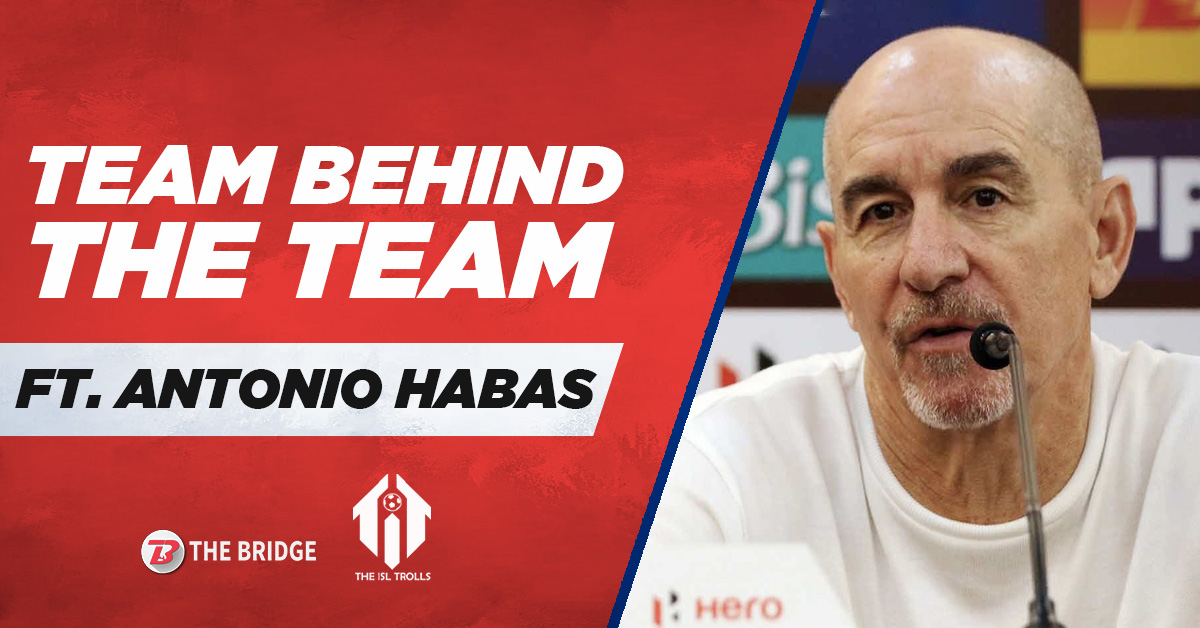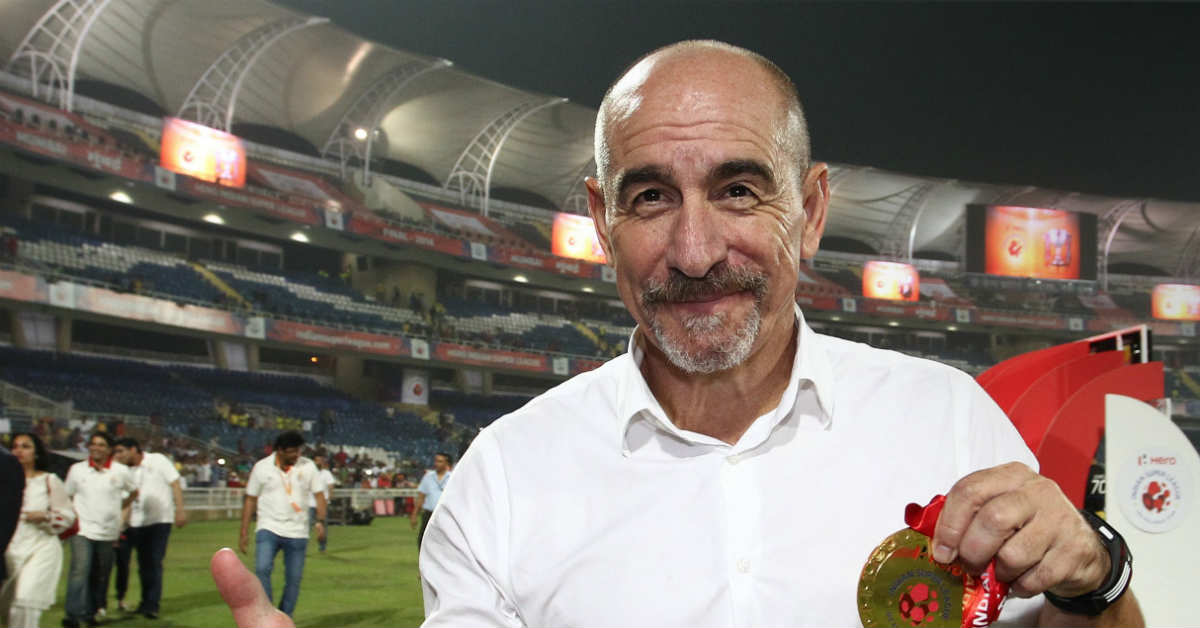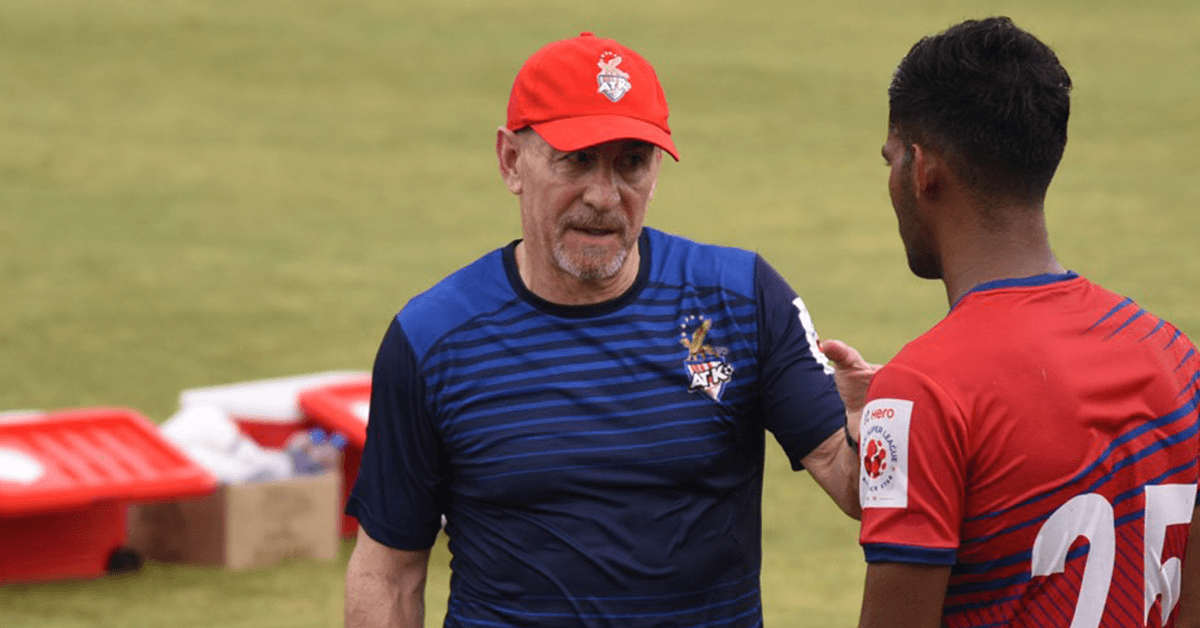Featured
EXCLUSIVE: 'We aspire to maintain our high standards in the ISL,' says ATK-MB coach Antonio Lopez Habas

Due to the ongoing coronavirus pandemic, football, like every other sport, has come to a sudden standstill. Thus, to make things a bit happening for the Indian football fans, The Bridge has launched this “Off the Post” segment where we will bring to you exclusive interviews, in-depth analysis and more.
To interact about “the team behind the team”, we got in touch with reigning Indian Super League (ISL) champion coach Antonio Lopez Habas, who led ATK FC to their third title, for an exclusive chat.
The 62-year-old Spaniard is currently the most successful coach in the ISL history. This was the second time that he had won the trophy with the Kolkata-based ISL franchise. Habas is known for his bold and honest moves on and off the pitch and is considered to be one of the most animated gaffers in the dugout.
As he spends the lockdown period back home in Spain, Habas speaks about his journey in India so far, his success with ATK, his philosophy about the game, Indian football and more. Following are excerpts:
 ATK FC head coach Antonio Habas (Source: ISL)
ATK FC head coach Antonio Habas (Source: ISL)
The Bridge: How do you see your success with ATK, having now won the ISL title twice
Habas: Success is very important to build a more, competitive and structured ATK-MB. At the same time, winning gives us the confidence. For me, win games and titles has to be a habit.
The Bridge: You have an astounding record as a coach in India having never missed the ISL playoffs with ATK FC. What is the secret behind this success?
Habas: No excuses, tactical discipline, voluntary effort from all parties and lastly, but most importantly, players who are highly competitive. For me, these are the key things to achieve success in football.
The Bridge: You have set an example in ISL this season bringing up a 19-year-old academy boy Sumit Rathi as a key player in the starting XI. What’s your take on this and how do you think the young prospects of academy should be utilised in future?
Habas: Most importantly, the academy must follow the same line of work as the first team. The club is planning properly and technicians are doing a good job. Being very close to the technical body of the professional team, I can say that the academy has good facilities and well-educated coaches. I'm sure they will be coming out with a bunch of new promising Indian footballers for the first team, because in Kolkata, the passion for the game is very high and the good human nature here also works in their favour.
 Antonio Habas in training (Source: ATK FC)
Antonio Habas in training (Source: ATK FC)
The Bridge: From your first campaign here at India to now, how do you think football has evolved in India?
Habas: The level of players and the clubs have definitely improved markedly in India since 2014. But now it’s the time to improve the game, in general.
The Bridge: What are the areas that you think India needs to improve in the upcoming years?
Habas: First and foremost, India needs to focus more on the facilities and provide economic resources to support the academies. Next comes the education and training of the coaches and support staff working in the circuit starting from the youth level to the national level. Investing and paying attention to sport has always been a way to improve the society worldwide. So, I think the country should definitely focus on the overall development of sports and its society.
The Bridge: It is now being considered that Spanish style of play is the most suitable in India. What according to you are the reasons behind this adaptation?
Habas: Spain doesn’t come up with a single style of football, there are many trends. However, Spanish football has been successful all around the world and in India. It’s because it works very well at academies and the country provides highly qualified professionals. The Spanish footballers are well prepared from the age of 7 and 8. So it’s the early learning and apt learning that comes in with a lot of experience that helps.
The Bridge: There is a proposal to reduce the number of foreigners in the upcoming seasons. What’s your opinion on it?
https://twitter.com/theisltrolls/status/1255408532868026369
Habas: I don’t agree with this proposal. If an Indian player is good and he has got quality, he will play for sure. My view is, the current model should continue at least for two or three years, as we wait for the work started at the academies to bear the fruits. We have to wait for the moment. More doesn't always necessarily mean better.
The Bridge: India currently lacks complete forwards and the void is getting bigger as there is still none to replace Sunil Chettri in the national team. What can be a solution to this?
Habas: Hard work at the academies and upliftment of the level of coaches at the grassroots is the utmost necessity to cope with this situation. Footballers do not come out from spontaneous generation rather they arise because the technicians have detected the right talents and then he or she has been developed by highly trained and well-educated coaches. The more the trainers and coaches are trained that more you get prepared players from the academies.
The Bridge: What are your plans and expectations with ATK-MB in the next season?
Habas: The first step has to be to choose the players from the template and then plan a good pre-season as we aspire to continue maintaining our high standards in the ISL.
The Bridge: Lastly, where do you see Indian football in the coming years?
Habas: I think India has a great potential to progress in world football. But we must build the pyramid from the base and not begin with the cusp. Because it requires a strong foundation and grassroots is what makes up a good architecture. It’s the same for every sport.
Also read: Join The Bridge’s interactive webinar with Bengaluru FC CEO Mandar Tamhane






